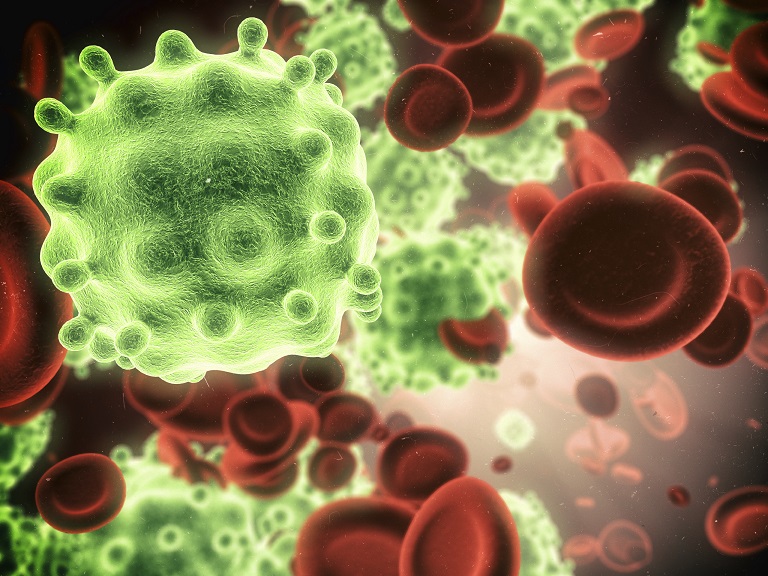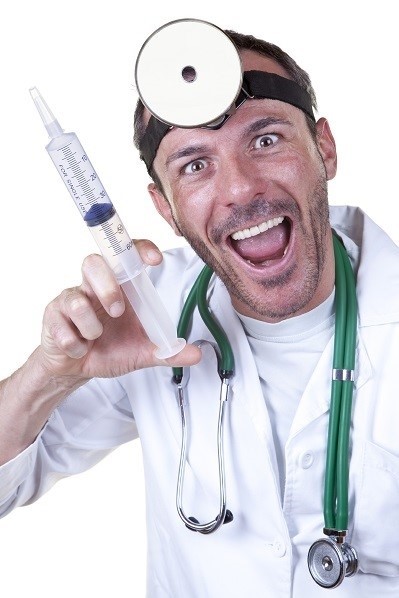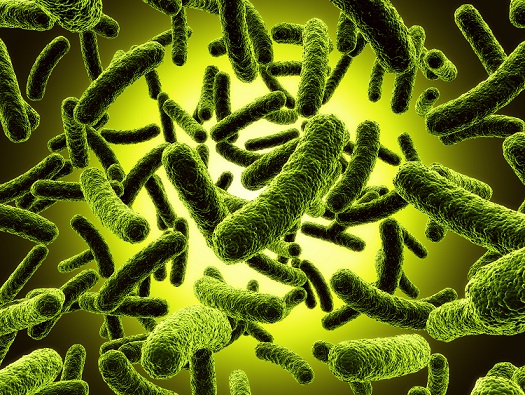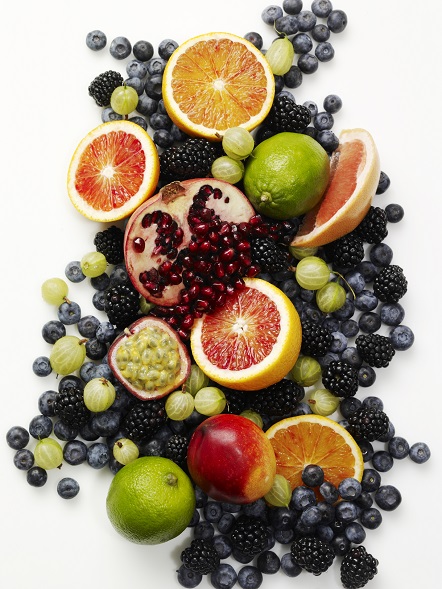In this day and age, oral antibiotics are popped like candy.
Along with benzoyl peroxide and Accutane/Isotretinoin, erythromycin and doxycycline are pretty much the default treatment handed out by dermatologists.
Antibiotics are far more mainstream than natural acne strategies such as cutting sugar or getting more zinc. Antibiotics are supposedly the very pinnacle of safe and effective acne treatments, but the truth is, they’re the opposite.
Previously, we’ve demolished the storied reputation of the topical treatment benzoyl peroxide, calling it a side effect producing, short term only, fallout spreading weapon of mass destruction. But even benzoyl peroxide beats oral antibiotics by a country mile.
Here’s why antibiotics are completely pointless and could even set your acne-clearing efforts back by a whole two years.
Antibiotics kill the wrong acne bacteria
If your skin is teetering over the edge of acne chaos, then your friendly dermatologist can give you either topical or oral antibiotics.
Topical antibiotics include clindamycin forms (such as Cleocin) and erythromycin (such as E-mycin) and are generally deployed against much milder acne. Their mission is to destroy p.acnes bacteria lurking on the surface of the skin. P.acnes is the generic “acne bacteria” which people constantly refer to; it triggers an inflammatory assault by the immune system which swells up the surrounding pore.
Oral antibiotics, meanwhile, are designed to kill the p.acnes bacteria residing inside the pore. Forms include erythromycin, and the tetracycline antibiotic family with members like doxycycline and minocycline. Oral antibiotics are reserved for more severe acne patients, with prescribed cycles lasting for months or even years. Many acne patients stay on a low maintenance dose forever.
This all sounds like a smart proposition, because after all, propionibacterium acnes is a key cog in the acne machine. Short term benefits are undeniably common, but here’s the problem: antibiotics don’t differentiate between bad bacteria and good bacteria.
Read Annihilate Your Acne – learn how to clear your skin permanently
Take a look at this 2013 study which gave antibiotics to 200 acne-prone women over the age of 25. A massive 164 women (82%) failed to get clear even after multiple courses, which is incredibly poor for such a standard treatment. Countless testimonials mirror this – there may be short term improvements, but the acne typically comes roaring back within weeks.
The harsh truth is that before antibiotics reach your skin and wipe out p.acnes, you have to digest them. When that happens, they have the perfect opportunity to strike at countless families of good bacteria.
The problem? You might have heard recently that healthy gut bacteria is emerging as the most revolutionary health story of the 21st century. We’re only 9% human; our bodies contain 10 trillion human cells and over 100 trillion bacterial cells, which is more than the stars in the Milky Way. These aren’t infectious, disease-spreading bacteria, they digest proteins, fats and carbohydrates alike.
Lactobacillus strains churn out neurotransmitters, including 95% of the happiness hormone serotonin and 50% of the motivation neurotransmitter dopamine. Gut bacteria even manufactures dietary nutrients such as vitamin K2 and B-vitamins. The diversity of strains has increasingly clear relationships with autism, depression, and conditions as seemingly unrelated as obsessive compulsive disorder (OCD). Some have dubbed the gut the “second brain”.
As for acne, the connections to clear skin are seemingly endless.
One excellent example is the stress hormone cortisol, a villain which inhibits nutrient absorption and prevents old pimples from healing. Prebiotic foods like yogurt have long been confirmed to slash cortisol, but a recent study finally clarified the science.
7 natural topical treatments which can massively reduce acne
Some mice were divided into two groups, a control group which ate regular mice feed, and a second group eating a common strain of yogurt bacteria called lactobacillus rhamnosus.
Several weeks later, the scientists chucked a bowl of cold water into mice’s den, to put them under severe stress. The standard diet mice panicked like crazy, swimming in a frenzy for four minutes before unfortunately drowning.
The bacteria-fed mice also fought hard to escape the water, but their swimming movements were far calmer. After six minutes, the mice remained afloat, after expending less energy (and yes, the scientists then pulled them free).
The truth became clear when the scientists assembled the raw data on hormones. Compared to the standard feed mice, the Lactobacillus rhamnosus mice had approximately 100 times less cortisol in their bloodstream. This itself was caused by far higher levels of the sedative neurotransmitter GABA, which restrains cortisol. We know that gut bacteria can increase both serotonin and dopamine, so this isn’t surprising.
If you too had the calming Lactobacillus rhamnosus in your gut, then your skin would be far more resistant to stress. Antibiotics, however, can decimate such bacteria.
Protect your gut bacteria at all costs
That’s just one example of how gut flora can feed through to your skin. Your gut bacteria can also affect…
ONE – your levels of inflammation (the root cause of acne).
TWO – the efficiency of nutrient absorption, including vital acne minerals like zinc and selenium.
THREE – your levels of the acne-causing hormone insulin.
FOUR – stress hormones again, by manipulating serotonin and other neurotransmitters.
FIVE – sleep quality, since serotonin is the precursor to melatonin.
Lactobacillus rhamnosus from yogurt is merely one gut bacteria species; there are thousands more with unique and uncharted benefits. In short, improving your gut flora is an unmissable hidden acne strategy. In fact, it might be the most interesting new area of acne research today.
Why aloe vera is the nemesis of red and inflamed acne
One study found that clindamcyin, a common oral antibiotic, caused lingering damage to gut bacteria 4 years down the line. Another study observed alterations 3 years later after a mere 7 day course, and most acne patients are prescribed antibiotics for months and months!
Taking oral antibiotics for acne could set your gut bacteria back years. Your mission: avoid them at all costs!
Antibiotics make your acne bacteria stronger
What’s worse is that if you pop antibiotics like candy, you are potentially worsening your acne in the long run.
You’ve almost certainly seen the terrifying news stories about bacterial resistance to antibiotics. Well, the same concept applies to p.acnes bacteria. Thanks to millions of antibiotics being dished out yearly, common antibiotics such as clindamcyin are becoming weaker and weaker, as the crafty p.acnes organism continually adapts.
Mainstream dermatologists are now reverting back to other treatments, and one Australian paper from 1998 stated that antibiotic-resistant acne forms rose sharply from 20% in 1978 to 62% in 1996. Who knows what’s happened since then? Acne antibiotics are pretty diverse, including doxycycline and minocycline, but p.acnes is growing stronger against each of them.
Resistance is particularly pronounced in North America and Europe, the global capitals of antibiotics. In fact, 4 out of 5 acne patients may be resistant to clindamycin, erythromycin and tetracycline, according to the British Harrogate and District NHS Council. A 2002 study discovered that antibiotic-resistant staphylococci (another inflammatory acne bacteria) can evolve after just 12 weeks of erythromycin therapy.
Basically, antibiotics will still cripple your gut bacteria, but they’re far less likely to even improve your acne compared to 40 years ago.
The apocalypse – just around the corner?
The next problem with antibiotic resistance is a much wider one – the classic end of the world alternative timeline.
Now, it might be exaggerated when the media constantly paints a picture of a dystopian future where school classrooms are empty, and fearful civilians stride through the streets hastily while wearing facemasks and talking to no-one. That’s pretty ridiculous, because antibiotics aren’t the only weapon for improving health, and we’ll almost certainly invent new ones (we reached the moon, after all)…
…but nevertheless, the problem of antibiotic resistance is undeniable. Antibiotic-resistant bacteria now infect over two million Americans per year, and cause at least 23,000 deaths. A report published in 2015 estimates that by 2050, antibiotic resistance will have killed 300 million people. The BBC projects it to be the number 1 global killer by 2050. The Chief Medical Officer of Britain once called antibiotic resistance a greater threat to world peace than terrorism.
Being reliant on a death-spiralling remedy is never a good idea anyway. The less any of us resort to antibiotics, the better.
Tons of acne strategies beat antibiotics easily
Even if the success rate did beat the laughable 18% shown above, and even if p.acnes wasn’t rapidly gaining immunity, I still wouldn’t recommend oral antibiotics for acne.
Why? Because there are so many superior options. It’s the exact same scenario as Accutane. Both are standard over-the-top weapons prescribed by doctors, which have massive side effects yet represent a mere 1% of the total topical treatments available for acne. Neither remedy deals with the root causes of acne. Dermatologists act as though as acne is actually caused by a deficiency in antibiotics or Accutane!
The truth, as we’ve discussed repeatedly, is that the faulty, standard Western diet and lifestyle is to blame. Hence, there are countless nutrients, foods, and lifestyle hacks that are far more effective than swallowing antibiotic pills.
Consider vitamin E. It’s one of the 32 essential nutrients in the human body, and is necessary for heart and brain health. Meanwhile, this study found that “patients with severe acne had significantly lower plasma concentrations of vitamins A and E than did those with lower acne grade”.
Another study concluded that “there was a negative correlation between acne severity and vitamin E and zinc levels”. As for vitamin A and zinc, they’re the masters of oily skin and lowering inflammation respectively.
If a random dermatologist handed out almonds or a plateful of broccoli, he’d be so successful that his boring concrete offices would become a pilgrimage site for acne patients flocking from all over the world. Sadly, that hasn’t happened yet, but the power is in YOUR hands right now.
If you want to try vitamin E, then the best natural supplement is this Garden of Life Raw Vitamin E.
If you’ve previously only used grocery store face blasters and maybe antibiotics themselves, then I have a message for you – the world of natural acne strategies is far vaster then you have ever realised.
Even if you can’t afford supplements, getting more sunlight will clear acne by increasing vitamin D, eating less sugar will work wonders, and so will cheap antioxidant-rich foods such as apples, sweet potatoes and oregano. We haven’t even touched on natural topical treatments like raw honey and tea tree oil, with the latter managing to reduce inflammatory acne by 46% after 6 weeks in one 2007 study.
Conclusion
Antibiotics do nothing to treat the root causes of acne such as chronic inflammation. What effectiveness they did have has slowly reduced. Most importantly, antibiotics can actually worsen acne in the long run, by indiscriminately carpet bombing your friendly gut bacteria.
Whether the antibiotic apocalypse is upon us is irrelevant, because the threat is real right now. If you’ve already taken a course of acne antibiotics, then you have already wiped out plenty of friendly bacteria..
…but luckily, human gut flora is fairly resilient. It’s easy to repair the damage, and your first stop is traditional fermented foods. These include natural yoghurt, natto, sauerkraut, kombucha (a culture of yeasts and bacteria brewed into a tea), fermented cheese, kefir, fermented pickles, and the Indian fermented yoghurt-based drink lassi.
Restrict sugary junk foods, since sugar feeds unhealthy yeasts like candida, and eat a wide variety of antioxidant-rich plant foods which fuel healthy bacterial strains. Great prebiotic foods include onions, garlic, apples, spinach, pistachios, dark chocolate (hooray), and sweet potatoes (the greatest carb source for an acne patient).
Stay on the gut flora wagon after you’ve repaired the damage, and your gut bacteria will diversify to levels far above the average acne patient’s. You’ll gain all sorts of advantages, such as accelerated acne nutrient absorption, and a happy mind to due to serotonin unlimited.
NEXT: forget creams and moisturisers – discover the ultimate acne-clearing diet
Thanks for reading!




